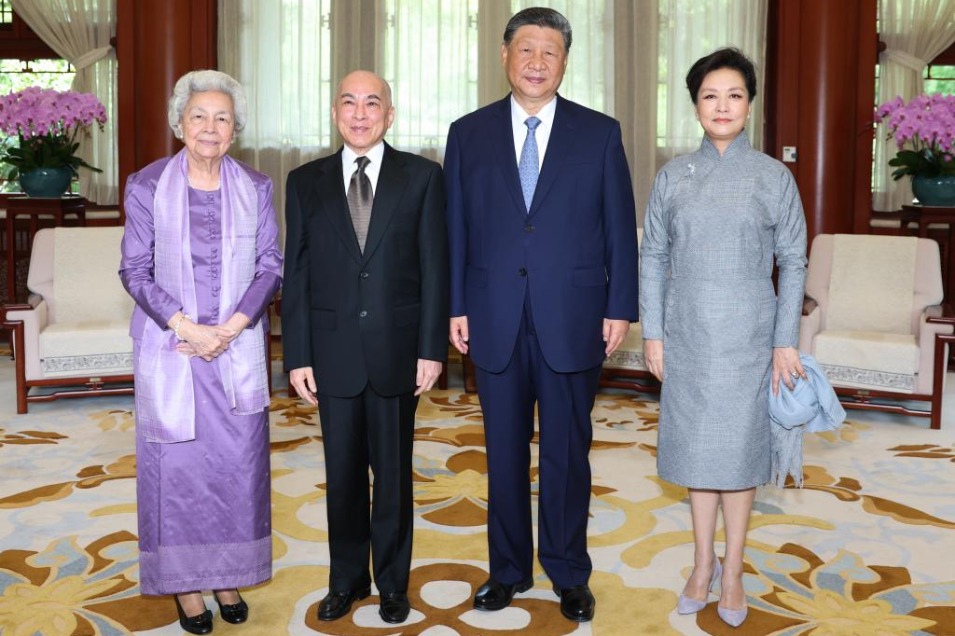'996' schedule must not be imposed on workers


Editor's note: The "996" schedule (working from 9 am to 9 pm, six days a week) has sparked a heated public debate, because many workers don't get any overtime pay and, worse, could end up in the "". The "996" phenomenon is rampant in the high-tech and internet companies. Some internet company chiefs have added fuel to the debate by saying they want their workers to "work hard". Three experts share their views on the issue with China Daily's Yao Yuxin. Excerpts follow:
Labor Law should never be violated
Given the fierce competition in the high-tech sector industries, start-ups have to take drastic measures to survive, let alone thrive. To develop new products, and produce and market them, companies need a great deal of resources and skilled manpower. Perhaps this is the reason they make their employees work overtime.
But forcing the "996" schedule on the workers is illegal. To protect the rights of workers, the Labor Law stipulates that employers should not force their workers to work more than eight hours a day, or more than 44 hours a week. If employers do need their staff to work extra hours to meet production deadlines or fulfill other tasks, they can ask them to work overtime – but not than 36 hours a month and only after consulting and reaching an agreement with the labor union and the workers. More important, employers have to pay at least 1.5 times the usual salary to the employees for overtime work.
This is to protect the rights, interests and health of the workers.
Jack Ma, founder of Alibaba Group, has added fuel to the debate, by saying that employees who get the "opportunity" to work according the "996" schedule are the lucky ones, because in many companies employees don't get the chance to work long hours.
But the fact is, if employers do not meet the two essential requirements to make employees work overtime – consulting workers and restricting the amount of extra work – and force the "996" schedule on their workers and make them work for more than 60 hours a week, they violate the Labor Law.
Zhao Zhanling, a lawyer at the Beijing Zhilin Law Firm
'996' the result of fewer people, extra work
Employees have been working according to the "996" schedule in some companies, including some well-known internet enterprises. Earlier this year, Youzan, an e-commerce company based in Hangzhou, Zhejiang province, triggered controversy by introducing the "996" schedule in its annual meeting. The move even prompted the labor authorities to conduct an investigation against Youzan.
Workers have been working overtime in many industries for years. But now, many programmers in internet companies are opposing the "996" schedule because the extra work does not come with any compensation or bonus. To reduce the labor cost, many high-tech and internet companies are laying off workers. That means, there are fewer people left to shoulder the extra work. That's a reason why the overloaded IT programmers have now burst out with complaints.
Alibaba chairman Jack Ma has said that only by working harder and longer than others can an employee achieve success in life. He has also said that those who want to join Alibaba should be prepared to work for 12-hour work a day. This not only goes against the Labor Law but also violates the rights and interests of the employers, and could harm their health.
It's time high-tech and internet companies designed a reasonable salary system to motivate their employees to give full play to their creativity and productivity, instead of forcing the workers to work long hours without adequate remuneration.
Chinese internet firms should learn from the managerial experiences of their foreign counterparts such as Google and Facebook to incentivize their staff if they want them to work overtime and improve their productivity.
Huang Wei, a lawyer at Zhejiang Shenggang Law Firm
Workers' rights and interests must not be compromised
The average leisure an average Chinese person enjoys is 2.27 hours a day compared with about 5 hours in developed countries such as the United States, according to a research conducted by the Chinese Academy of Social Sciences.
Due to the "996" schedule in some high-tech and internet companies, the workers have even less leisure time, which affects not only their daily life but also their health. Worse, many workers don't even get paid for the extra work they do.
But despite being forced to work overtime without getting due remuneration, very few employees use the Labor Law to defend their rights, because it is not easy for them to seek legal redress for their grievances. For example, workers spend a lot of time and money to furnish effective proof that they were asked to work and indeed worked overtime. By so doing, they could even lose their job – as employers could sack them for poor performance.
Interestingly, Liu Qiangdong, founder and CEO of JD.com, used his WeChat account to say he now follows a "8116+8" schedule (8 am to 11 pm, six days a week, and 8 hours on Sunday, with only two days off a month), and even worked harder when he started his company. Had he not followed the schedule, JD.com might not have survived the fierce competition from other internet companies.
Although Liu said he would not force his employees to work according to the "996" schedule, he would want them to work as hard as he did during the initial years of JD.com.
It is therefore important that standards to calculate workload per day should be set and quantified, and supervision over the exploitation of labor made stricter. In addition, internet companies should, according to the law, reduce the work schedule and pay workers their due for overtime work, and find better ways to increase their employers' productivity. But under no circumstances should workers' rights, interests and health be compromised.
Gao Xingfa, a lawyer at the Shanghai Xinben Law Firm

































